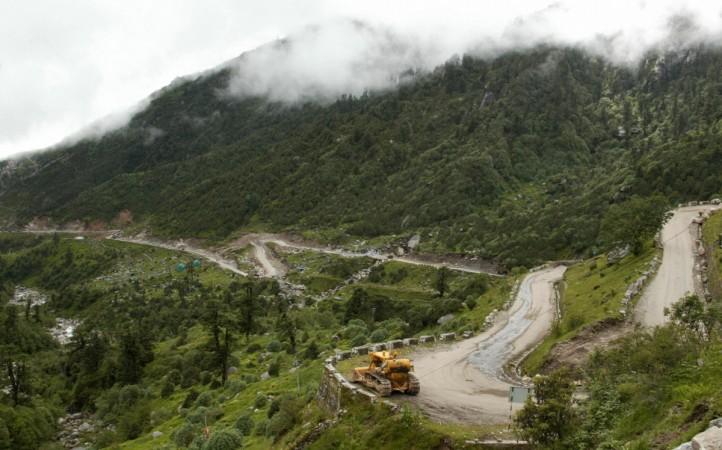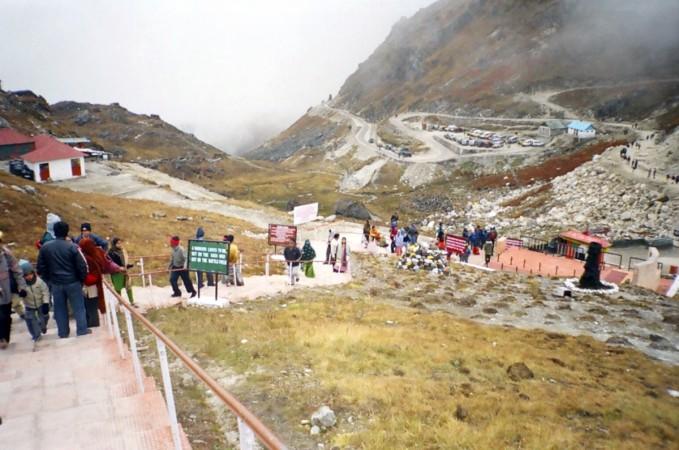
Even though the resolution to the 73-day Doklam standoff at the Indo-China border in Sikkim is considered a diplomatic victory for New Delhi, with a Chinese People's Liberation Army official also lauding the move, Beijing continues to make its presence felt in the region.
It is now being said that about 1,800 Chinese army personnel are present at the border, where the country has been building roads and upgrading existing ones. The PLA has also constructed two helipads in the region and is also setting up huts, shelters and stores to survive the tough winters. Strangely, the Chinese army has reportedly never camped in the region during the winters, and mostly withdrew by November.
Indian security sources told the Times of India that while the standoff might have been sorted out peacefully, the "almost permanent stationing of People's Liberation Army (PLA) troops in the region," came with it.
"Earlier, PLA patrols would come to Doklam, which is disputed between China and Bhutan, between April-May and October-November every year to mark their presence and lay claim to the area before going back," the source told TOI. "Now, after the 73-day eyeball-to-eyeball troop confrontation at Doklam between India and China ended on August 28, the PLA troops have stayed put in what we consider to be Bhutanese territory for the first time this winter."
However, quelling fears that the dispute might just come up again, the source clarified that there were no security concerns and that the "status quo prevails at the earlier face-off site."
The same had been explained by the Ministry of External Affairs in October, when reports trickled in about how China had begun constructing roads at the Indo-China border in Doklam.
"China is reinforcing its claim on the Doklam territory (India backs Bhutan's claim on it) by upgrading the road around 10-km north and east of the earlier face-off site. The PLA has been controlling the road for some years and regularly sends patrols to the area," a source had told the daily.

But India had refuted the claims of PLA buildup in the region and said that there was nothing alarming taking place there. It said there were "no new developments" at the "face-off site and its vicinity."
"We have seen recent reports on Doklam. There are no new developments at the face-off site and its vicinity since the August 28 disengagement. The status quo prevails in this area. Any suggestion to the contrary is incorrect," said Raveesh Kumar, spokesperson of the Ministry of External Affairs.
But India seems to be still taking precautions and due to instances like these, the Border Roads Organisation, which is in charge of building roads and infrastructure in tough terrains, plans to build highway tunnels along the border. These tunnels will also provide better and easier access to the soldiers even during rough weather conditions like rain, snow, avalanches and landslides. And it will also reduce the operational cost and the need to deploy security personnel in risky areas. Some of these tunnels are already said to be under construction.














